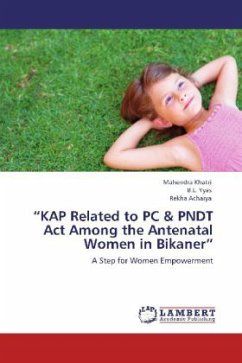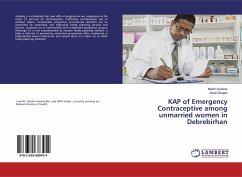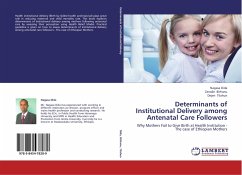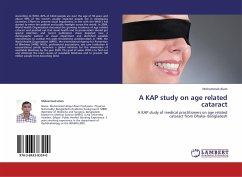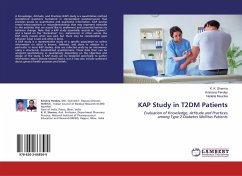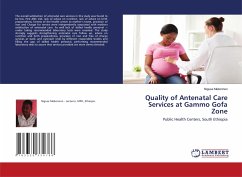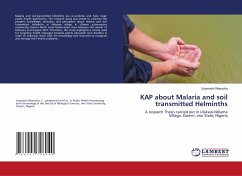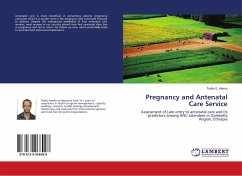It was a population based cross sectional study done with the objective of Knowledge, Attitude and Practices (KAP) Related to Pre-Conception & Pre-Natal Diagnostic Techniques (PC & PNDT) Act Among the Antenatal Women in Bikaner district. A population of antenal women 1000 preference of male child an indicator of gender discrimination was seen, It correlated with female age, literacy, their socioeconomic status,parity. After a detailed the present study showed a clear picture of factors affecting the knowledge and attitude towards the PC & PNDT Act. The existence of son preference at an alarmingly high rate in our society is the root cause of imbalanced sex ratio. Moreover, the inclination to female feticide is reported by the subjects in spite of them being aware of the consequences of imbalance in sex ratio. Socio demographic factors like age, literacy, socioeconomic status, parity sex of the previous child and pressure by family or husband affect the knowledge, attitude and practices towards the PC & PNDT Act and woman s preference for her next child. These days higher social classes are more vulnerable for misuse of PC & PNDT Act, doing sex selection and female feticide.

